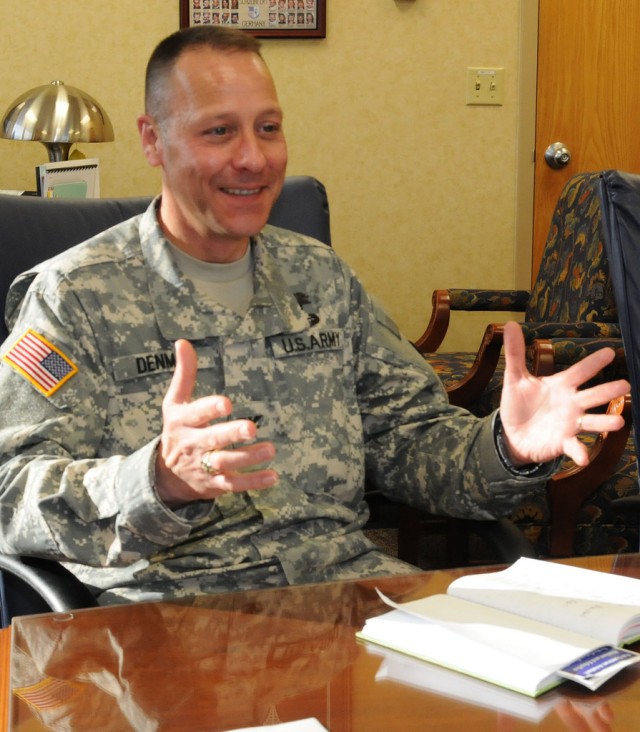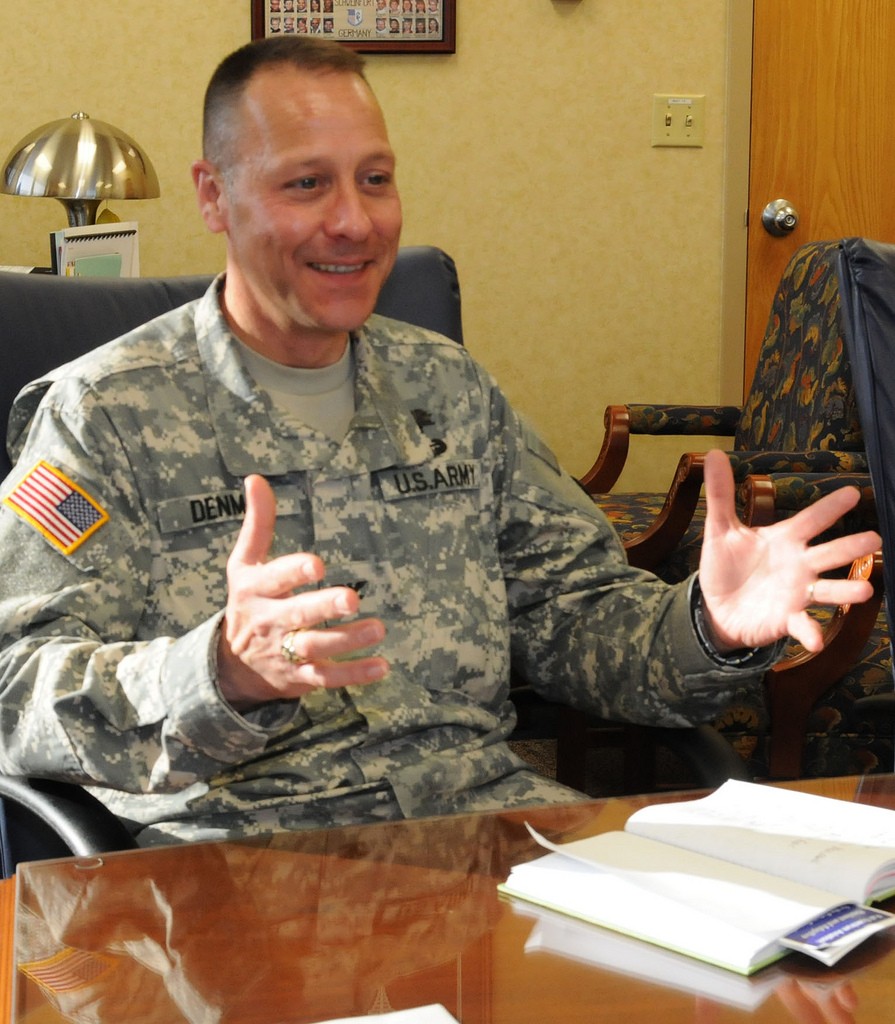FORT RUCKER, Ala. -- Lyster Army Health Clinic is in the midst of consolidation of clinics, renovations and technology advancements to better serve the Army Family.
A new software program for viewing and sharing patient files is the first step to help Lyster advance in the new age of technology, said Col. Patrick Denman, commander of Lyster Army Health Clinic and the U.S. Army Aeromedical Center.
Currently there are two electronic health record systems, Alta and Aero. The current process of using two systems is ineffective and time consuming, said Denman.
"We are currently in the process of gaining access to a demo touch screen computer that will mount on a bracket in each exam room," he said. "It will allow the provider to log in to the system, view Aero and Alto simultaneously, and share information to other computers by the single touch of a finger."
The time frame for the new system will begin in a phase process. Within the next nine to 12 months, the new system should be available in the exam rooms and allow providers the ability to view two programs at once.
Over time, providers will be able to use voice Internet protocol for video teleconferencing and be able to use context management software to share information with the single flick of the finger, according to Lt. Col. Joseph Graham, deputy commander for administration Lyster Army Health Clinic and the U.S. Army Aeromedical Center.
"The first good aspect of being able to video teleconference is if a patient wants a family member to sit in on the appointment and they were unable to attend, providers can conference them in via video teleconference," Denman said. "Secondly, doctors will be able to conduct peer-to-peer conferences with specialists while the patient is in the room, allowing the patient to hear the discussion concerning their health."
While the new system could be up and running within the next few months, a demo will begin within the next 90 to 120 days to make sure the program works efficiently and the providers are happy with the service, he added.
By having portions of the new system in place so soon, providers and beneficiaries need to keep in mind that it will be a process that takes time, Graham said.
"Initial operating capabilities will include touch screen and dual view of systems," he said. "What will be available is when you sit down in an exam room, the health care provider will come in and dictate directly to the computer all information gathered during the examination. Beneficiaries will be able to see the information going directly into their records."
"Everything is being done in real time. When you and the provider walk out the door, your chart is complete and signed. It is ready to go just as you are ready to go." Denman added.
The system will also be mobile-when a Soldier or their Family is transferred to a new military installation all of their information will go with them. Their current health care provider at the installation will be able to pull up and view their medical information from Fort Rucker, Denman said.
"Our goal is to be mostly wired with 21st century technology being able to provide 21st century treatment plans for our beneficiaries," he added.
Additional ideas being discussed are adding educational classes for beneficiaries who come to Lyster for medical support.
"We are going to try to partner with you; we want you to live a long and healthy life," said Denman. "We will educate by putting together educational teams that will teach you about physical fitness, eating healthy and losing weight so you do not put yourself at risk."
For example, Denman said diabetics may require education for the care of themselves or their Family members. Providers will make arrangements to take a patient and their Family members to a patient education room to speak with a nurse who can educate them on the disease process, and managing and maintaining it.
Also, if a patient has children or is pregnant, Lyster will help educate them on how to take care of their children, so they will be healthy and help take care of themselves so the baby will be healthy.
"A lot of parents have anxiety over immunizations, we want to partner with the parents and make sure they understand preventative medicine so they will get their children immunized," Denman said.
According to Denman, ideas are flowing freely on adding such education at Lyster. An additional possibility is adding cooking and physical fitness classes.
Denman believes it would be nice to come to the clinic and see a nutritionist who will take a beneficiary into the kitchen and teach them how to prepare food in a healthy way. Simultaneously, while learning how to cook, they are also being taught by a fitness instructor on how to take care of themselves with moderate to heavy exercise.
"We want to sit down with you to create a lifestyle of wellness that you and your family can engage in throughout the course of life," Denman added.
Denman and his team are in the initial stages of exploration for this process which is meant for Soldiers, Families and retirees to get the information they need.
"The whole intent is to not wait until you get sick to come see us - we are here for you," Denman said.


Social Sharing